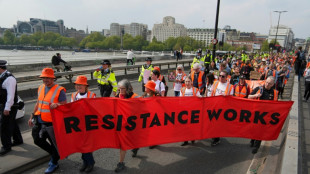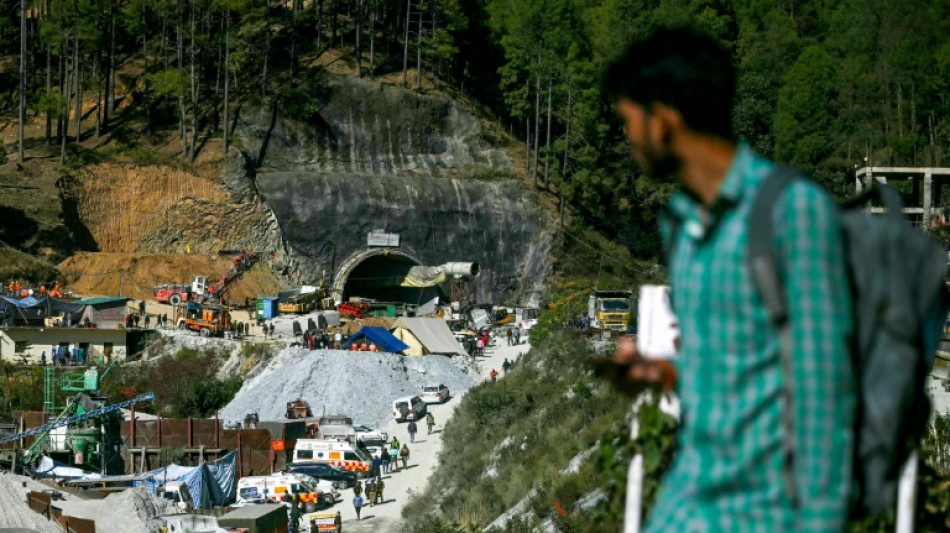
-
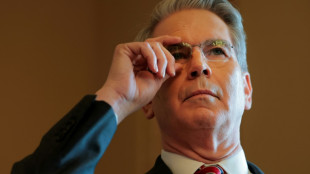 Markets boosted as Trump softens tariff pain for auto firms
Markets boosted as Trump softens tariff pain for auto firms
-
Suryavanshi, 14, dubbed 'next superstar' after batting records tumble

-
 Australian doubles player Purcell accepts 18-month doping ban
Australian doubles player Purcell accepts 18-month doping ban
-
Kashmir attack unites political foes in India, Pakistan
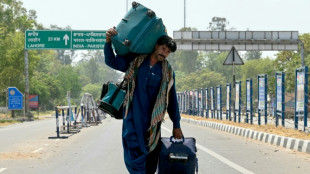
-
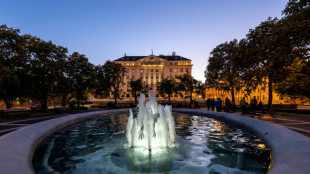 Croatia hotel toasts dizzying century of stars, sovereigns and champagne
Croatia hotel toasts dizzying century of stars, sovereigns and champagne
-
Kenya's desperate need for more snake antivenom

-
 Les Kiss in frame with Wallabies set to name new coach
Les Kiss in frame with Wallabies set to name new coach
-
Cavaliers scorch Heat, Warriors down Rockets in thriller

-
 Opposition wins Trinidad and Tobago election, returning Persad-Bissessar as PM
Opposition wins Trinidad and Tobago election, returning Persad-Bissessar as PM
-
Study sheds light on origin of Australia's odd echidna

-
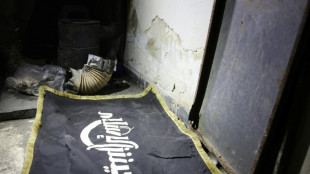 France tries Syrian Islamist rebel ex-spokesman on war crime charges
France tries Syrian Islamist rebel ex-spokesman on war crime charges
-
Trump boasts of 'fun' 100 days, but Americans disenchanted

-
 Elitist no more, caviar is turning casual
Elitist no more, caviar is turning casual
-
Amnesty accuses Israel of 'live-streamed genocide' against Gaza Palestinians

-
 Inter slump puts season at risk ahead of daunting Barca trip
Inter slump puts season at risk ahead of daunting Barca trip
-
Power returns to most of Spain, Portugal after massive blackout
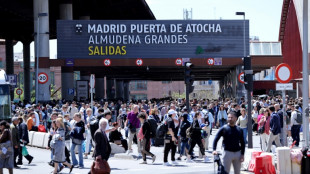
-
 'I have hope': Vietnam Babylift survivor's search for birth mother
'I have hope': Vietnam Babylift survivor's search for birth mother
-
US climate assessment thrown into doubt as Trump dismisses authors
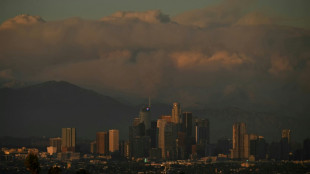
-
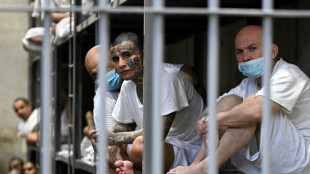 Venezuelan president slams US over little girl's 'abduction'
Venezuelan president slams US over little girl's 'abduction'
-
Hard-right upstarts eye big gains in local UK polls

-
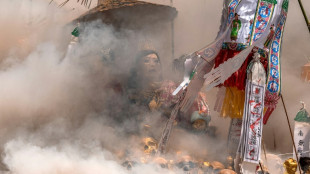 Skulls, smoke and spirits: Thai ceremony for the unclaimed dead
Skulls, smoke and spirits: Thai ceremony for the unclaimed dead
-
Canada's Carney: political newcomer who says he's best in a crisis

-
 Cavaliers scorch Heat to seal series sweep
Cavaliers scorch Heat to seal series sweep
-
Dead salmon create election stink on Australian island
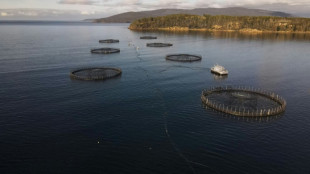
-
 Mic check: Singapore's podcast boom amplifies opposition voices
Mic check: Singapore's podcast boom amplifies opposition voices
-
Markets rise as traders gear up for earnings, key jobs data
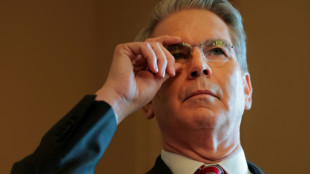
-
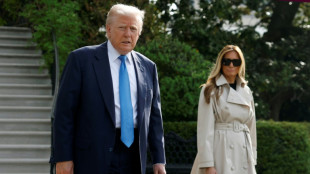 Congress passes 'revenge porn' ban, sending it to Trump
Congress passes 'revenge porn' ban, sending it to Trump
-
Spain and Portugal work to restore power after massive blackout
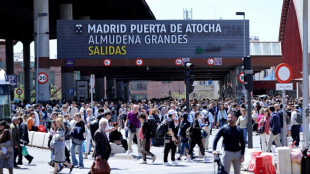
-
 Less-thirsty rice offers hope in drought-stricken Chile
Less-thirsty rice offers hope in drought-stricken Chile
-
Yamal stardust could give Barca edge on Inter Milan

-
 Coca-Cola Europacific Partners plc Announces Q1 Trading Update & Interim Dividend Declaration
Coca-Cola Europacific Partners plc Announces Q1 Trading Update & Interim Dividend Declaration
-
Trump targets US 'sanctuary cities' in migrant crackdown

-
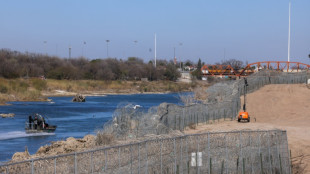 Mexico agrees to send water to US after Trump threatens tariffs
Mexico agrees to send water to US after Trump threatens tariffs
-
Amazon launches first Starlink-rival internet satellites
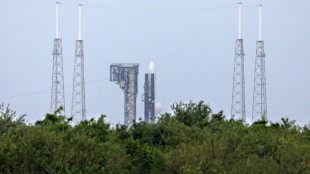
-
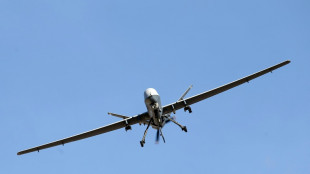 US lost seven multi-million-dollar drones in Yemen area since March
US lost seven multi-million-dollar drones in Yemen area since March
-
Bucks blow as Lillard suffers torn Achilles: team

-
 Putin orders three-day truce amid new US warnings
Putin orders three-day truce amid new US warnings
-
Real Madrid's Ancelotti agrees Brazil deal - reports
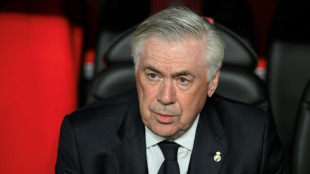
-
 ChatGPT adds shopping help, intensifying Google rivalry
ChatGPT adds shopping help, intensifying Google rivalry
-
Global stocks mixed amid trade hopes as markets await tech earnings

-
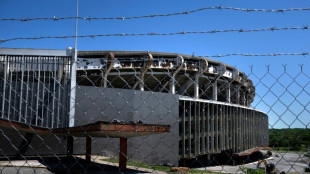 Commanders heading back to D.C. after inking $3.7 bln stadium deal
Commanders heading back to D.C. after inking $3.7 bln stadium deal
-
US warplane falls off aircraft carrier into Red Sea

-
 Feisty Arteta urges Arsenal fans to 'bring boots' to PSG Champions League clash
Feisty Arteta urges Arsenal fans to 'bring boots' to PSG Champions League clash
-
Bucks blow as Lillard suffers ruptured Achilles: reports

-
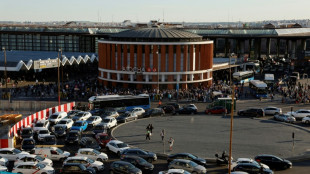 No power, no phone, no transport -- Spain in a panic
No power, no phone, no transport -- Spain in a panic
-
US warplane went overboard into Red Sea: Navy

-
 'Like a dream' as IPL's 14-year-old Suryavanshi becomes youngest to hit T20 ton
'Like a dream' as IPL's 14-year-old Suryavanshi becomes youngest to hit T20 ton
-
Luis Enrique says PSG have improved since October Arsenal loss

-
 UN food, refugee agencies warn of huge cuts after funding losses
UN food, refugee agencies warn of huge cuts after funding losses
-
Trump trade war dominates BRICS meeting in Brazil


India tunnel collapse 'wake-up call' for Modi's infrastructure drive
India's aggressive infrastructure push into the ecologically fragile Himalayan mountains has been given a "wake-up call" by the collapse of a road tunnel that trapped 41 men, environmental experts say.
The partial cave-in of the under-construction Silkyara road tunnel in northern Uttarakhand state nearly two weeks ago -- with the desperate men still awaiting rescue on Friday -- was only the latest disaster in the geologically unstable region.
Added to that are the challenges caused by rising global temperatures unleashing a cascade of extreme weather that scientists warn will get worse.
"The scale and extent of the infrastructure development needs a complete rethink," Shripad Dharmadhikary, an environmental researcher and veteran activist, told AFP.
India's monsoon rains mean flooding is common, but major infrastructure projects in the mountains -- including hydroelectric dams, railways and roads -- are being built in areas hit ever harder by storm surges and landslides.
"It is one thing to build roads for local connectivity," Dharmadhikary said.
"But roads for big hydropower projects are much wider, increasing vulnerability and risk... Scale makes a big difference."
- 'Risks ignored' -
Raghav Chandra, ex-chairman of the National Highways Authority of India (NHAI), warned Friday that "building a tunnel through a mountain is perilous", but dangers were multiplied when such large-scale projects are poorly carried out.
"The accident is a wake-up call about the perils of undertaking massive construction projects in the fragile Himalayan range, which is under threat from intense human activity and the vagaries of the climate crisis," Chandra wrote in the Hindustan Times, alongside another top ex-NHAI official, BS Singla.
The Himalayas -- the world's highest mountain range, with peaks driven upwards by colliding continental plates -- is one of the globe's most seismically active regions, with earthquakes common.
Scientists say glaciers in the Himalayas are melting faster than ever due to climate change, exposing communities to unpredictable and costly disasters.
Last month, UN Secretary-General Antonio Guterres said Himalayan regions were struggling with rapidly melting glaciers, warning on a visit to neighbouring Nepal that the "rooftops of the world are caving in".
The Silkyara tunnel is part of Prime Minister Narendra Modi's infrastructure project aimed at cutting travel times between some of the most popular Hindu temples in the country.
The 4.5-kilometre (2.7-mile) passage is meant to connect Uttarkashi and Yamunotri, two of the holiest sites.
For Modi, leader of the Hindu-nationalist Bharatiya Janata Party (BJP), the grand projects help burnish his appeal, with elections due next year.
But India's projects are also focused on improving access to strategic areas bordering rival China.
New Delhi has been wary of Beijing's growing military assertiveness and their 3,500-kilometre shared frontier has been a perennial source of tension.
"Tunnelling helps to reduce travel time and plays a strategic role by enabling quicker passage of defence armaments and military troops," Chandra and Singla added.
"But, with the growing urgency to speed up construction, the manifold risks and challenges involved... are often ignored."
- 'Course correction' -
After the Silkyara collapse, the NHAI said it would assess all 29 under-construction tunnels to "ensure safety and adherence to the highest quality standards".
Arnold Dix, president of the International Tunnelling and Underground Space Association, pointed out the advantages of building tunnels.
"The environmental footprint of a tunnel is likely to be less than the environmental footprint of a much larger and more complex road," Dix told AFP at the Silkyara tunnel site, where he is helping rescue efforts.
Campaigners say that while development is needed, the breakneck pace is causing problems, including a surge of unregulated building development replacing the forests that helped keep hillsides stable.
"This decade... the Himalayas have been tunnelled, blasted, cut, gouged, turned to rubble and concretised as never before," environmental campaigner Priyadarshini Patel wrote in the Times of India this week.
"The development model in this young, fragile mountain range has been disastrous and needs course correction," added Patel, head of Ganga Ahvaan, a community group working to protect the Himalayas and the watershed of the Ganges river.
"Mega-projects are not what the Himalayas are about, culturally or geologically".
A.Mahlangu--AMWN
